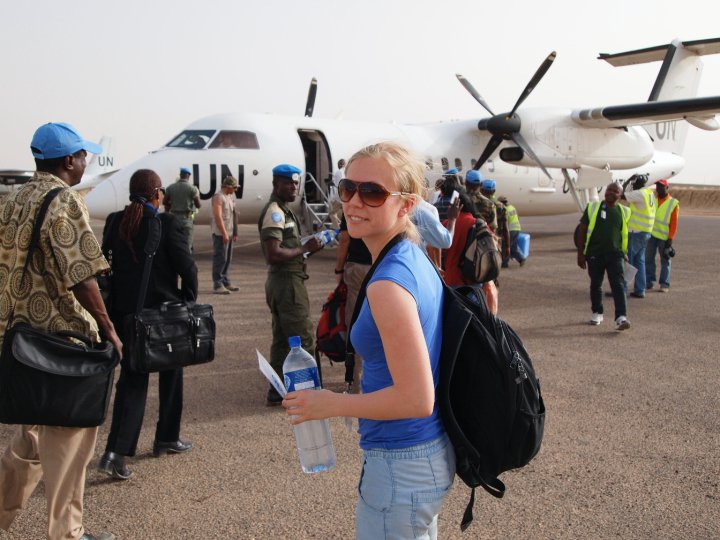This week we will introduce you to one of our board members and Co-chair of NFU: Jason Miklian.
Jason has been a part of NFU for 5 years and is a key member in our organization.
He became a part of NFU because he thinks that given how diverse the topics housed under the “development studies” umbrella are, he feels it is essential for scholars both in Norway and the Nordics more broadly to have the opportunity to untie and grow together, especially given the challenges that development studies and adjacent fields are facing globally.
He has two main research areas:
1. Business, development and peacebuilding.
2. Climate and Conflict.
He chose his research fields due to a mix of interest and happenstance! He started his career as a South Asia studies scholar, then became interested in the connections between business and conflict in places of “economic underdevelopment”, as the Indian government put it. This led to his PhD at Noragric in development studies, with a qualitative / mixed-methods focus studying the role of the Maoist conflict and extractive firms on development.
He currently works for the Centre for Development and the Environment, University of Oslo and his main projects now are an NFR-funded qualitative collaborative project on the role of small businesses in crisis and urban fragility, and an NFR mixed-methods project on the role of business and development on conflict in Africa.
Since he is living in Bogotá, Colombia at the moment, he is enjoying the sunshine and wonderful people while enjoying a bit less needing to get up early for the occasional 4AM call with his Oslo colleagues. 🙂
In his opinion, development studies is an worthwhile field because in an era of increasing specialization (yet hosting demands to be more cross-cutting and interdisciplinary), development studies provides an ideal platform for understanding complex societal relations in a way more holistically and critically-oriented than many other point-specific fields. In a time of increasing global uncertainty over inequality, climate change, and international order he believes that we are overdue for a renaissance in development studies, and he is excited for NFU to be a part of this leading edge.
For his more recent works, he chose to share with us a recent narrative non-fiction book on the Liberation of Bangladesh and the climate-conflict links therein, called The Vortex. Even though it is a less academic work, he is still very proud of it and thought it would be very intersting to share it.


